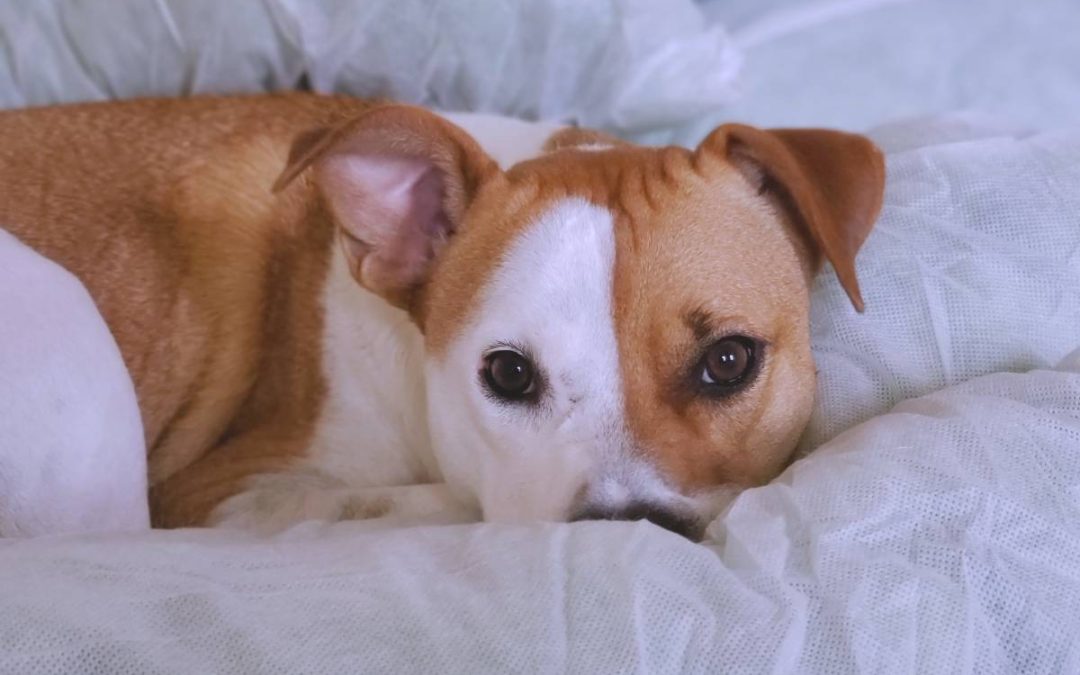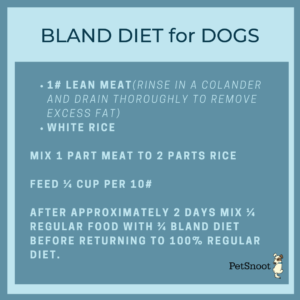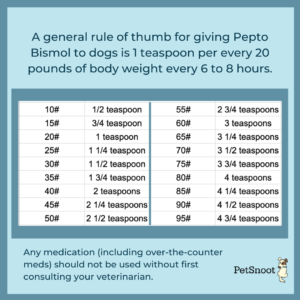No one wants their dog to get sick or feel bad! When our pets get diarrhea or vomiting we want to “fix” the situation immediately. In most cases, diarrhea is the body’s way of flushing out toxins and it is typically best to let it run its course. If you know your dog may have eaten something like garbage or something poisonous, call your veterinarian or poison control immediately and do NOT give any over-the-counter medications.
What if your dog has diarrhea, but to your knowledge hasn’t eaten anything poisonous or abnormal? If your dog does not have any underlying medical conditions and is otherwise healthy, read the information below to help get them on track.
Withhold food for approximately 24 hours.
What goes in must come out. Give their system a chance to flush out the toxins and settle down a bit before offering more food. Always have fresh water available!
When your dog is ready to eat again, offer bland foods.
A bland diet such as boiled hamburger, skinless white meat chicken, and cooked white rice should be fed for approximately 2 days. See the recipe below.
Keep them hydrated.
Diarrhea can rapidly deplete the body of essential fluids. Keep a water bowl full of fresh water at all times and offer a separate bowl with Gatorade.
Exercise.
Believe it or not, walking 15 minutes twice a day will help stimulate a part of the nervous system that is responsible for keeping the gut calm. Only attempt exercise if they have the energy for it!
Why can’t I just give my dog some Pepto Bismol?
Like aspirin, Pepto can increase blood serum levels of salicylate. This leads to thinning of the blood and digestive tract irritation. Too much Pepto can lead to salicylate poisoning which has serious effects such as coma, breathing difficulties, tremors, seizures, and internal bleeding.
It is important that you don’t give Pepto if your dog has a bleeding disorder, stomach or intestinal ulcer, is pregnant or nursing, is taking NSAIDs, aspirin, or if they are on ACE inhibitors. It is important to use Pepto cautiously in young and debilitated pets as constipation and fecal impaction can occur.
If you decide to give your dog Pepto, be sure to take them to the veterinarian if there is no improvement after 1 to 2 doses. Keep in mind, giving large doses or treatment over long periods of time will increase the risk of unwanted effects and can do more damage than good. Monitor your dog’s stools during treatment. Stools may become tinted green or gray, which is a common effect of Pepto Bismol. If stools become tar-like (a sign of bleeding) you should contact your vet immediately!
How do I know how much Pepto to give my dog?
A general rule of thumb for giving Pepto Bismol to dogs is 1 teaspoon per every 20 pounds of body weight every 6 to 8 hours. Please know, any medication (including over-the-counter medications) should not be used without first consulting your veterinarian. If your dog becomes lethargic or diarrhea persists for more than 24 hours call your veterinarian.
Can I give Pepto to my cat for diarrhea?
Do NOT use Pepto in cats as they are sensitive to aspirin. Did you know 30mL of Pepto contains approximately 325 mg of aspirin? If your cat has diarrhea, call your veterinarian.
In many cases of diarrhea in dogs, we should allow the body to do what it does best, hence the phrase “let it run its course.” As pet owners, we want what’s best for our pets and want to be sure we offer the right help. It can be challenging for pet owners to feel confident they are doing the right thing when their pet is ill. When in doubt, it’s always best to call your veterinarian.
Overdoses can be dangerous due to the salicylate component of Pepto Bismol. If you suspect an overdose, seek emergency veterinary attention or call the ASPCA poison control hotline on (888) 426-4435.




Very helpful, thank you!!